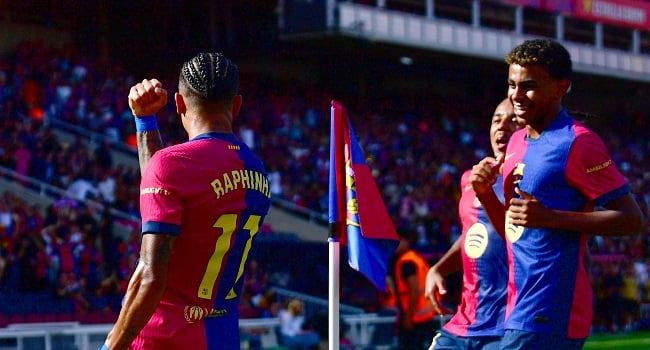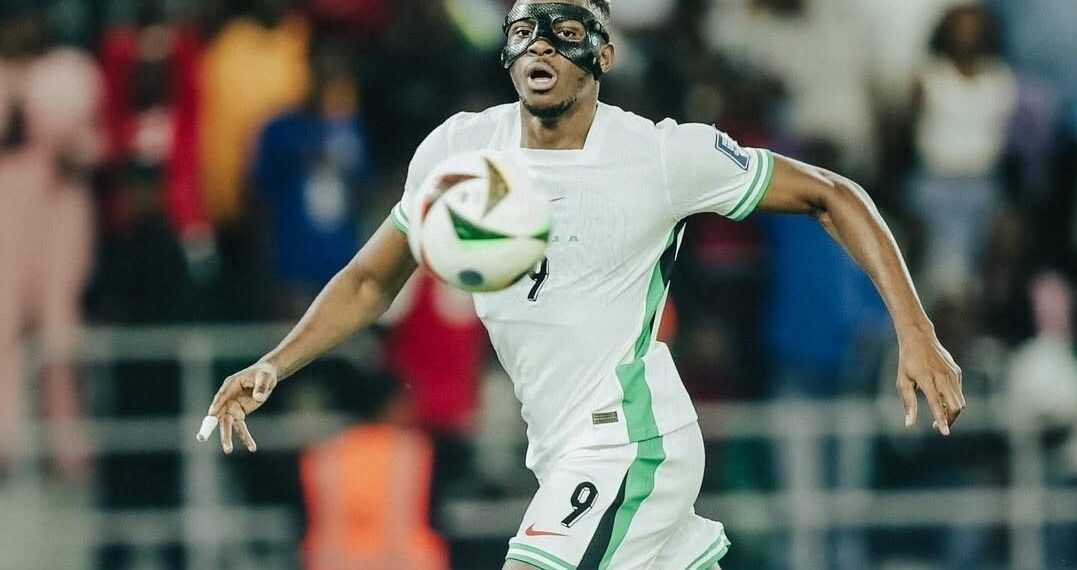Football fans in Nigeria and across West Africa are buzzing after the announcement that two major European league matches will be played outside their home countries. According to an official statement from UEFA released on Monday, select La Liga and Serie A fixtures have been approved for staging in the United States and Australia, respectively. This decision comes despite longstanding opposition from fan groups and marks a rare move in the world of European football.
The approved fixtures mean that Spanish sides Barcelona and Villarreal will clash in Miami this December. Meanwhile, Italian clubs AC Milan and Como will meet on the pitch in Perth, Australia, come February. The move, described by UEFA as “exceptional,” has generated heated debate among football enthusiasts, administrators, and pundits both in Europe and Africa.
Africa’s Deep Love for European Football
For many Nigerians and West Africans, European football isn’t just a weekend event — it’s a way of life. Local football viewing centers, buzzing with excited fans in Lagos, Abuja, Accra, and cities across the continent, have made fixtures from La Liga, Serie A, and the Premier League a communal affair. Barcelona and AC Milan jerseys are common sights at bus stops, market squares, and university campuses. As a result, any changes to the usual flow of these leagues are felt acutely in Africa, where millions follow with passion and pride.
The Controversy: Fans Voice Concerns Worldwide
Despite the thrill of seeing major European games reach new global audiences, supporters’ organisations and devoted fan groups, both in Europe and abroad, have expressed serious concerns. Their main arguments include:
- Undermining the loyalty and tradition of local, match-going fans who cannot travel abroad for relocated “home” games.
- Potential disruption of fair competition within domestic leagues by altering home and away advantages.
- The concern that commercial interests may override the soul of football — its deeply rooted local communities and traditions.
According to UEFA President Aleksander Ceferin, the governing body is well aware of these grievances. In his statement, reportedly signed and published on Monday, Ceferin emphasized, “League matches should be played on home soil… anything else would disenfranchise loyal match-going fans and potentially introduce distortive elements in competitions.” He thanked all 55 national associations for their input and maintained that the decision applies uniquely to these two matches, warning that it must not be seen as precedent-setting.
Why Are These Matches Moving Now?
The concept of exporting high-profile league matches abroad is not new. Both the Spanish and Italian football federations have previously floated similar ideas, reportedly as part of efforts to grow their brands and increase global fan engagement. This strategy dovetails with the growing commercialisation of the sport, in which overseas tours, preseason friendlies, and global sponsorships have become commonplace — most notably, the Premier League’s extensive preseason tours in Asia and the United States.
However, this is the first time official, points-giving domestic league matches will take place outside their countries of origin. According to UEFA’s statement, the federations of Spain and Italy formally submitted requests for these matches to occur abroad, which UEFA evaluated with input from all national associations before granting the exceptional approvals.
Potential Impact on African Fans and Football Stakeholders
With La Liga and Serie A boasting sizeable fan bases in Nigeria and throughout West Africa, the decision holds distinct local significance. For many on the continent, Europe’s top leagues are not only followed passionately, but also serve as inspiration for aspiring footballers. Lagos-based analyst Tolu Ajeigbe notes, “So many of our youth model their games after these foreign clubs, study their tactics, and dream of one day playing at that level. Any changes to the league’s rhythm matter in Africa just as much as in Europe.”
However, the prospect of matches being played far from their home stadiums — say, Barcelona playing in Miami with thousands of miles separating them from Camp Nou — can complicate the rituals and identity local fans have built. According to fan group leader Emeka Umeh in Abuja, “It is not just about seeing the games on TV or the internet. It’s about the atmosphere, the chants, the traditions that make those clubs special.”
There are potential economic ripple effects, too. European teams touring Africa have often brought business opportunities to kit sellers, local broadcasters, transport services, and food vendors catering to match-day crowds. Yet, Nigerian sports journalist Grace Ogunyemi observes that overseas regular-season matches could shift more focus to larger global markets, potentially depriving African vendors and fans of occasional direct engagement opportunities unless similar exhibition matches are scheduled in Africa in future seasons.
UEFA’s Statement: An “Exceptional” Move
UEFA’s directive sought to assure all stakeholders that the integrity of the game remains intact. In President Ceferin’s words, “While it is regrettable to have to let these two games go ahead, this decision is exceptional and shall not be seen as setting a precedent. Our commitment is clear: to protect the integrity of national leagues and ensure that football remains anchored in its home environment.”
UEFA further confirmed that all 55 of its national associations had agreed to extensive consultations, and have collectively pledged to seek further dialogue with the governing body before making any similar future requests. This process, officials explained, is intended to shield league competitions from piecemeal commercialisation, and maintain trust with the fans who are the foundation of the sport.
Comparative Context: Are Other Leagues Next?
Historically, ideas to move league games abroad have been met with resistance across Europe. The English Premier League’s infamous “39th Game” proposal — which would have seen a round of league games held outside the UK — was scrapped years ago due to widespread opposition from supporters. In Africa, however, pre-season friendlies and international exhibitions featuring European sides are regularly packed affairs, demonstrating the continent’s hunger for the live football experience.
Some analysts believe that if the Miami and Perth matches succeed commercially, other leagues or clubs may test the waters with similar ventures in key overseas markets. Yet, there’s no certainty, as UEFA and most national authorities are keen to limit these changes to avoid eroding established traditions and competition balances.
Reactions from Nigeria and West Africa
Initial reactions in Nigeria have been mixed. Young fans and social media commentators have largely welcomed the idea, seeing it as evidence of African and global fans’ importance to European football. “It shows they see us and value us as part of the worldwide football family,” commented Instagram user @footballnalife_ng.
However, older supporters and legacy fan groups remain cautious. According to veteran sports presenter Kwame Mensah in Ghana, “Football is about community — not just TV rights or empty spectacle. Even from afar, we support traditions that made these leagues what they are.”
Some experts argue that Africa should use this moment to advocate for more direct presence by European clubs on the continent, via official matches or youth development tours, in a move that benefits both fans and local footballing ecosystems.
What’s Next for European Football, and for Fans in Africa?
UEFA’s decision opens a new chapter in football’s ongoing globalisation story. While these two matches are exceptional, they serve as a test case of balancing tradition, commercial opportunity, and worldwide fan engagement. For now, millions of supporters in Nigeria and across Africa will be watching closely to see how the matches unfold, and what implications follow for the sport they hold so dear.
What are your thoughts on moving these major league matches abroad? Do you support the idea or fear it might damage football tradition? Drop your comments below and follow us for the latest football updates!
Have your say and get involved! Are you a die-hard football fan from Nigeria, Ghana, or anywhere in Africa with a story, opinion, or unique football experience to share? We’re eager to hear your views on these game-changing developments and welcome your stories for potential feature or sale. Contact us at story@nowahalazone.com — your perspective matters!
Want help or have feedback? Reach out at support@nowahalazone.com.
Connect with our sports-loving community: Follow us on Facebook, join the conversation on X (Twitter), and catch exclusive content on Instagram. Let’s debate, celebrate, and shape the future of football together!










